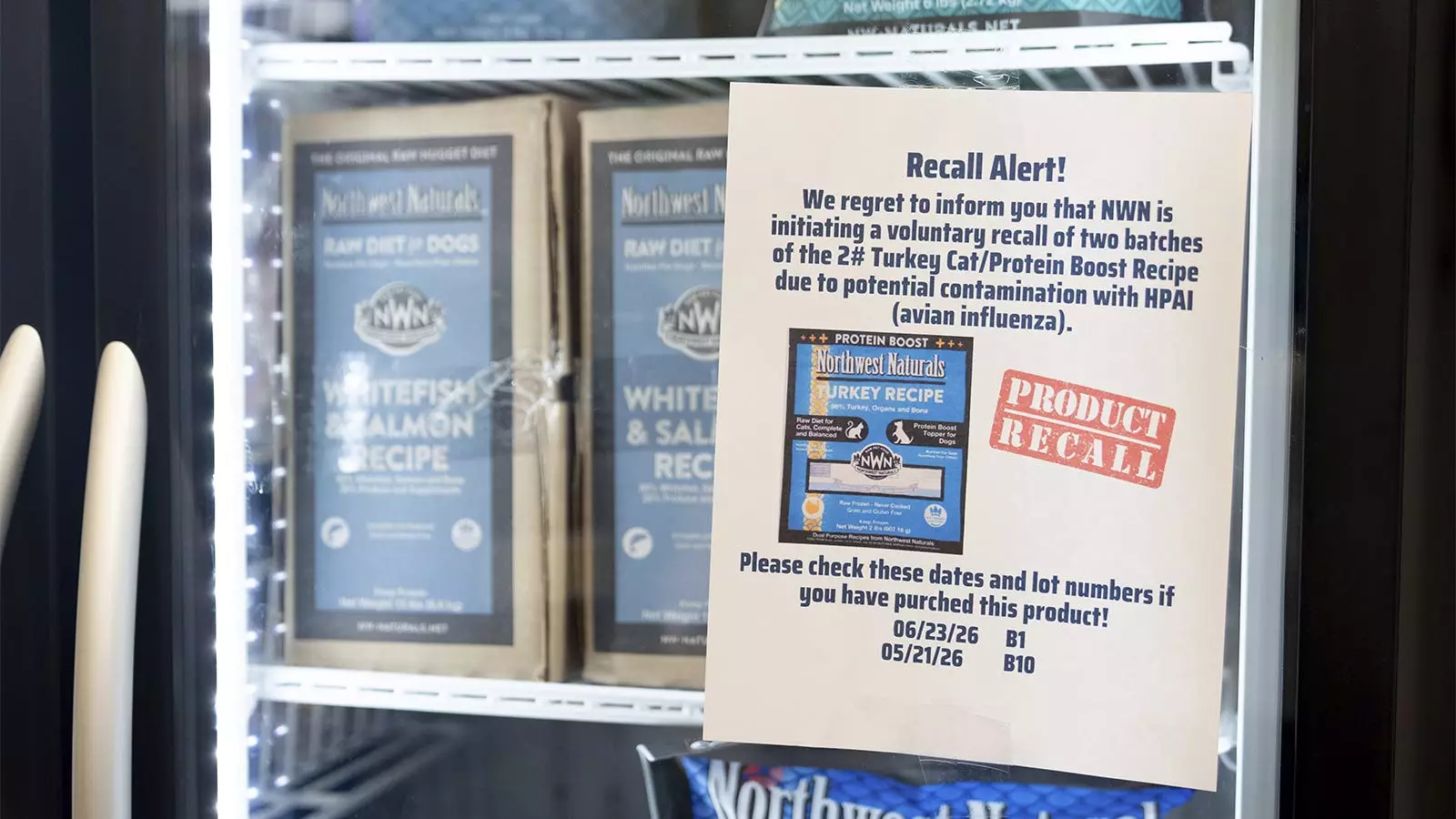The recent death of a house cat in Oregon has ignited concerns about the impact of the current bird flu outbreak on domesticated pets. Bird flu, specifically the H5N1 virus, has been a persistent issue in avian populations and has now transitioned to mammalian hosts. This alarming situation, which includes sporadic but concerning infections in humans—predominantly among those involved in farming—raises critical questions about how pet owners can safeguard their animals during such outbreaks.
Despite primarily affecting birds, the H5N1 virus poses risks to various mammalian species, including felines. Case reports have indicated an uptick in infections among cats, leading to heightened scrutiny from health officials. The cat linked to the recent incident in Oregon reportedly contracted the virus after consuming raw turkey from a recalled batch of pet food. This case underscores the potential dangers of feeding pets raw meat, a practice that many pet owners, albeit unadvisedly, continue to embrace.
Veterinary authorities highlight a growing concern regarding raw diets for pets. Dr. Michael Q. Bailey, President-Elect of the American Veterinary Medical Association, warns against the dangers of uncooked meat and raw dairy products. He emphasizes that cooking meat and pasteurizing dairy is crucial, as these processes eliminate harmful pathogens, including the bird flu virus.
Many pet owners are drawn to raw feeding under the illusion that it is a more natural or healthy option for their pets. This myth can be debunked by understanding that raw diets are not only a potential vehicle for infectious diseases but can also expose pets to nutritional imbalances. The tragic outcomes witnessed in the Oregon cat serve as a stark reminder of the risks associated with raw feeding, particularly during an outbreak.
Understanding how to recognize bird flu in cats is essential for pet owners. Symptoms can vary but often include lethargy, loss of appetite, fever, and respiratory distress. Notably, a shift in behavior where a usually active and sociable cat becomes lethargic or reclusive can signal that something is amiss. Other critical signs include red or inflamed eyes, discharge from the nose or eyes, difficulty breathing, and, in severe cases, neurological symptoms like tremors or seizures.
If any of these symptoms are observed, it is vital to contact a veterinarian immediately. Prompt action can significantly improve the prognosis for affected animals, especially in an environment where early detection is key in curtailing the spread of infectious diseases.
To effectively protect pets from the threat of bird flu, proactive measures are necessary. Pet owners should refrain from feeding their cats raw meat and unpasteurized dairy. It is equally important to limit their exposure to wild birds, livestock, and areas where poultry congregate. Keeping cats indoors and providing controlled environments can minimize their risk of infection.
Moreover, pet owners should avoid direct contact with sick or dead birds and maintain a strict hygiene protocol after handling any poultry products. Regular handwashing and sanitization can serve as an effective barrier against the transmission of zoonotic diseases.
Impact of the Pet Food Recall
The situation has been exacerbated by a recent voluntary recall of a batch of Northwest Naturals Feline Turkey Recipe raw frozen pet food due to contamination with the H5N1 virus. This product, distributed across multiple states, has prompted health officials to intensify their monitoring efforts. Consumers are advised to check the “best if used by” dates and to discard any recalled products.
As bird flu continues to pose a threat to pets, increased awareness and preventive measures can greatly enhance the safety of our furry companions. Pet owners must remain vigilant and informed, recognizing the significance of responsible feeding practices and the role of hygiene in mitigating risks during this public health issue.

